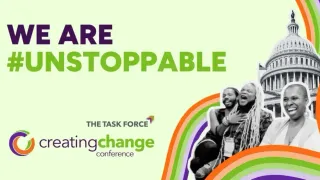July 17, 2018
CEO-in-Waiting Talks About Spirit Airlines' Future
David Koenig READ TIME: 3 MIN.
The two things that stand out most about Spirit Airlines are its low fares and high number of complaints.
Spirit has improved on-time performance and cut its complaint rate by more than half in the last few years, although it still ranks near the bottom among U.S. airlines.
The airline is about to get a new CEO. Ted Christie, currently the president, will take over in January, replacing Robert Fornaro.
Christie sat down with The Associated Press recently at Dallas-Fort Worth International Airport and talked about how Spirit will handle rising fuel costs, the airline's plan for growth, and how it will improve its reputation. The answers have been edited for length.
Q: For people who have never flown on Spirit, who are your customers?
A: The vast majority of people on airplanes today are in the top 10 percent of wage earners in the United States, so 90-plus percent of the United States just does not travel very often on airplanes. Products like ours have a better shot at trying to attract that type of discretionary spend.
Q: Spirit gets about half its revenue from fares and half from fees. Is that the right mix?
A: We are 50-50 today. The objective is to reach an attractive balance between the fixed component of travel, which is fare, and the variable component of travel, which is ancillary products, that attracts the right guest base. People like options. Not all people buy airline travel the same way.
Q: Do Spirit and the other ultra-low-cost carriers nickel-and-dime customers with all the fees you charge?
A: When people buy a ticket on Spirit or any airline, they have a certain view in their mind about what the value exchange is and what they expect to get in return. They expect a clean, friendly, reliable, safe mode of transportation that met their expectations in the form of the price that they paid. It is different than an experience on a fully bundled carrier, but that product is attractive to certain people because they want to be more selective with their discretionary spending.
Q: In the last Transportation Department report your complaint rate was down more than half from a year ago, but you and Frontier are still at the bottom. How will Spirit improve its reputation?
A: Changing the reputation is about consistency. There are allegories for this in history over a variety of different segmented products where maybe the lower-cost alternative took some time to prove to people that there was value. If it was Honda in the '70s or if it was McDonald's in the '50s - pick your analogy.
Q: You lost money in the first quarter, and your stock is down about one-fourth from a year ago. Can you reverse that?
A: The stock responds to a variety of different inputs, and we're in a competitive space. Airline stocks in general are reflecting sentiment around a few concepts, which is can the industry show that it has appropriate pricing traction when you have change in input costs like fuel, labor.
Q: Some analysts think Spirit will be hurt by high fuel prices because you lose some of your cost advantage. Is that true?
A: I've heard that theory and I don't necessarily agree with it. While the math would suggest that as fuel goes up our ex-fuel cost advantage (for everything other than fuel) becomes a smaller percentage, the truth of the matter is fuel rising affects every airline similarly. We all fly basically the same aircraft in size in one form or another, and they all burn about the same amount of gas to go where you're going. We have more seats on the airplane than anyone else, so when a cost like that inflates we can charge less per passenger to cover the expense.
Q: Are you going to make any immediate changes when you become CEO in January?
A: The good news is we have a great starting point, we have a very good core product. I don't think I come in here needing to necessarily turn the apple cart upside down. What this is about is consistent focus on execution. That starts with the schedule and the network, and then it goes into the delivery of that product, which means the reliability of your crew network and your airplanes. We're well under way; we still have room to do better and we know that.






